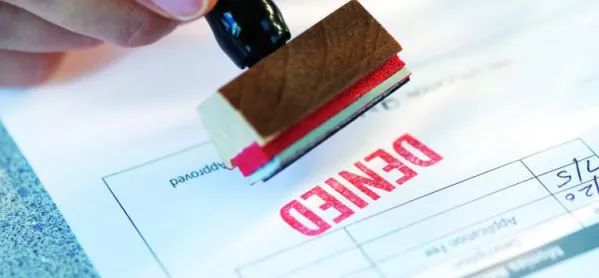- Home
- The admissions postcode lottery: 5 new findings
The admissions postcode lottery: 5 new findings

A parent’s chances of successfully appealing for a school place varies massively depending on where they live.
New figures show that there is a postcode lottery in the proportion of parents successfully appealing - with those living in the London faring worst.
Here are five things revealed in today’s school admission figures from the Department for Education.
1. There is a postcode lottery in parents’ chances of success
The number of successful appeals varies massively across the country. In Knowsley, where just five secondary school appeals were heard, all were successful. And in Wigan, where 93 hearings took place, 83.9 per cent were upheld.
At the other end of the scale, in Hounslow, West London, just 0.8 per cent of 239 hearings were successful.
The local authority with the highest number of secondary appeals heard was Kent with 2,169 - of which 30.5 per cent were upheld.
2. It’s harder for parents to appeal in London
In many education tables, London outperforms the other regions in England. However, today’s admission appeal statistics are less favourable for parents in the capital.
It shows that at primary school appeals are almost four times less likely to be successful in London compared with the national average.
Nationally, 19 per cent of primary school appeals succeed compared with just 5.5 per cent in London. This is lower than any other region in the country.
At secondary school level, 12.2 per cent of parents who appealed were successful in the capital compared with 23.4 per cent nationally.
3. The number of appeals has remained steady
The Department for Education figures published today show that 60,718 appeals were lodged in 2017-18 - 4 per cent of the total number applying for a school place .
Of these, 44,520 had their appeal heard (3 per cent of new admissions). This compared with 44,626 (2.9 per cent) in 2016-17.
There were 9,715 successful appeals - 21.8 per cent of those which were heard by a panel. The percentage figure was unchanged from last year.
4. Success rate varies by school phase
The success rate varies significantly according to school phase.
The DfE figures show that non-infant primary classes continued to have the highest proportion of heard appeals being upheld, with a slight rise to 36.3 per cent in 2017-18, up from 35.8 per cent.
The proportion of infant class appeals upheld was much lower at 12.2 per cent, although this figure also rose slightly in 2017- 18, from 11.7 per cent in 2016-17.
The DfE report says that legal restrictions are in place that require infant classes - Reception and Years 1 and 2 - to be limited to 30 children. It says this reduces the possibilities for successful appeals for these year groups.
At secondary school, 27,877 appeals were heard, of which 6,529 were decided in the parents’ favour - 23.4 per cent. This was down from 24.6 per cent in 2016-17.
5. Success rates also vary by school type
The figures show that appeals to community and voluntary controlled schools are the least likely to be successful.
Of the 13,602 appeals heard in 2017-18, 2,594 (19.1 per cent) were successful.
There were 24,835 appeals for places at academies in the past academic year, of which 5,591 were successful - 22.5 per cent.
The success rate was higher still for voluntary aided schools with 4,495 appeals heard, of which 1,100 were successful - 24 per cent. Foundation schools had the highest proportion of successful appeals. Of the 1,588 appeals which were heard, 430 (27.1 per cent) were upheld.
Register with Tes and you can read two free articles every month plus you'll have access to our range of award-winning newsletters.
Keep reading with our special offer!
You’ve reached your limit of free articles this month.
- Unlimited access to all Tes magazine content
- Save your favourite articles and gift them to your colleagues
- Exclusive subscriber-only stories
- Over 200,000 archived articles
- Unlimited access to all Tes magazine content
- Save your favourite articles and gift them to your colleagues
- Exclusive subscriber-only stories
- Over 200,000 archived articles



